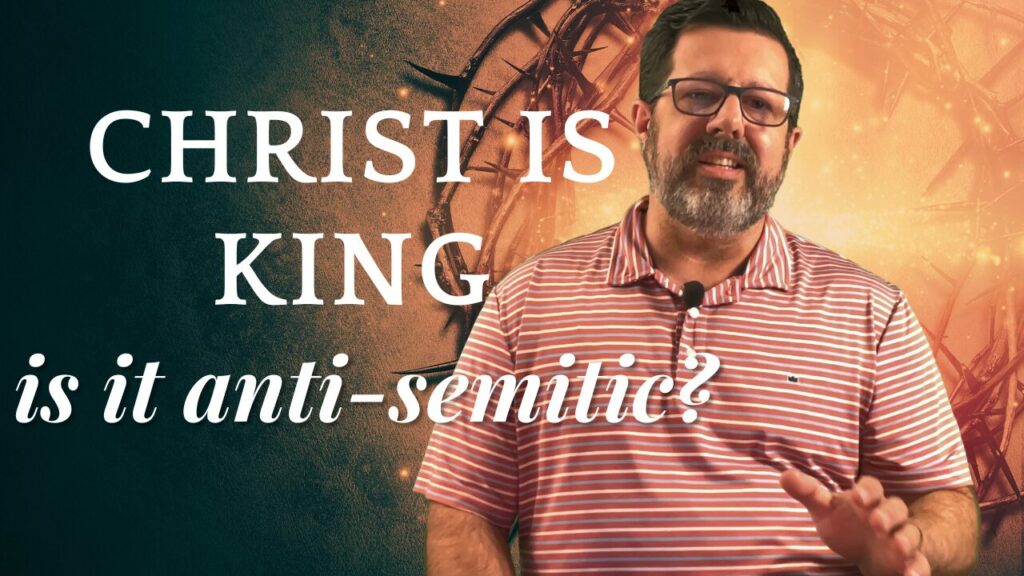Welcome to another episode of Five Broken Loaves. Our mission is to help each other grow in our love for Christ, his lost sheep, and the brethren.
Alright folks, buckle up because we’re diving deep into one of the most perplexing questions in Christianity: Why does God allow evil? This topic is a real head-scratcher, with answers ranging from the downright bizarre to the seemingly plausible. Now, I’ve wrestled with this question for a good chunk of my life, and let me tell you, I’ve heard some interesting theories along the way. But as of now, I’m not claiming to have all the answers. I’m open to exploring different perspectives and seeing how they stack up against the biblical text. However, I gotta admit, there’s one explanation that’s really caught my attention and seems to align with my understanding of God’s character.
Now, before we plunge into the depths of this discussion, I want to offer a bit of a heads-up. What I’m about to say might not sit well with everyone, whether you’re a Christian or not. In fact, you might find yourself scratching your head or even feeling a tad uncomfortable. But hear me out. If you’re not a Christian, I urge you to crack open the book of John and give it a read. Seriously, right now if you can. Better yet, take a moment to reflect on your life and consider whether it reflects the love you have for your sins. If so, it’s time to repent and put your trust in Jesus as your Lord and Savior. Believe in your heart and confess with your mouth that Jesus, the Son of God, died on the cross and rose again to cover your sins. Without this foundation, anything I say from a Christian perspective will sound like foolishness to you. Now, for those of you who already have the indwelling of the Spirit, I encourage you to sit with the answer I’m about to provide, dive into your own reading, and weigh what I say against your own research. Let’s proceed with an open mind and a heart seeking truth.
As I reflect on my journey, I recall being taught that God permitted sin to enter the world to grant us free will, allowing us to choose to love Him authentically. The idea was that without this choice in a world marred by sin, our love for God would lack genuine sincerity. However, as I’ve delved deeper into my understanding of God and love, I’ve encountered significant issues with this explanation.
Firstly, upon scrutinizing the Scriptures, I found no evidence indicating a broken relationship between humanity and God prior to the Fall. In fact, God declared His creation “good,” suggesting a harmonious and perfect relationship between man and God. Moreover, we see in the narrative of the Garden of Eden that God walked among His creation, perhaps indicating an intimate fellowship that was disrupted after humanity’s disobedience. The subsequent hiding from God and the shame experienced by Adam and Eve stand in stark contrast to what must have been their previous interactions with God, suggesting a rupture in their relationship following the Fall.
Since there are certainly some assumptions regarding their interactions, let’s get into scripture to create a more solid foundation. In 2 Corinthians 5:18-20, we discover Paul’s profound declaration that God has reconciled us to Himself through Christ. This term “reconciled” is not merely a theological abstraction; it carries profound implications. In Greek, the word used for “reconciled” denotes the restoration of a fractured relationship. It speaks of repairing what has been broken, of bringing back into harmony that which was once in disarray.
Consider, for instance, the instruction in Matthew 5:24 to “first be reconciled to your brother.” This command underscores the reality of a relationship that was once intact but has since been ruptured, necessitating a process of restoration.
In applying this concept to our relationship with God, we recognize that it was originally whole and unblemished. However, through the entrance of sin into the world, this pristine relationship was marred and fractured. And, even as Christians, redeemed by the blood of Christ, we still grapple with the lingering effects of sin. Our ability to love God, though restored, remains tainted by the residue of our fallen nature. Unlike Adam and Eve in their sinless state, we struggle to love God with the same purity and fervor. Because of this, we eagerly await the day when God will bring us home, where we will love Him perfectly and without hindrance for all eternity.
The notion that love necessitates a choice between good and evil presents a significant challenge when we consider the nature of the Trinity. Within the Trinity, God the Father, God the Son, and God the Holy Spirit exist in perfect unity and eternal harmony. They are not subject to the moral dilemmas or choices between good and evil that we encounter in our fallen world. Instead, they share a divine essence and are of one mind, perfectly loving and relating to one another.
This unity and perfection within the Trinity serve as a foundational presupposition regarding God’s nature and His perfection. As Christians, we affirm this truth without reservation. However, it leads us to question the notion that sin or the choice between sin and righteousness is a prerequisite for a loving relationship with our Creator.
If the perfect love within the Trinity does not depend on the presence of sin or the possibility of choosing evil, then why would such conditions be necessary for our relationship with God? This challenges the idea that our love for God must be contingent on the existence of moral alternatives. Instead, it suggests that our capacity to love God can be rooted in His inherent goodness and our recognition of His divine attributes.
In light of this understanding, we are compelled to reconsider the assumption that sin is essential for genuine love. Indeed, our relationship with God can be characterized by a pure and unwavering love that transcends the complexities of moral choice. As we deepen our understanding of the Trinity and its implications for our relationship with God, we are invited to embrace a more profound and transcendent understanding of love—one that mirrors the perfect unity and harmony found within the Godhead.
I won’t delve deeply into the intricacies of the concept of free will, for the simple reason that it’s not necessary. You see, God could have endowed us with free will while simultaneously creating a world where we never chose to act against His will. In such a world, our love for Him would have remained pure, akin to the pristine state of the Garden of Eden.
You might object, arguing that free will inherently entails the choice to rebel against God. But why must this be the case? Is it conceivable that we only assume such a necessity because our understanding has been tainted by the effects of sin? Consider this: Adam and Eve possessed the ability to refrain from sinning. Simply, they had the ability to Not Sin. If we acknowledge this capability, then logically we must also acknowledge that they were not compelled to sin. Thus, their love for their Creator could have remained untainted, even in the presence of free will.
This line of reasoning leads us to the conclusion that free will does not inherently mandate sin. If it did, it would cease to be genuine freedom of choice. Therefore, whether we affirm or deny the existence of free will, we can agree that sin was not a prerequisite for humanity, nor was it a prerequisite for our loving relationship with God.
The moment has arrived. I urge you to take a moment to listen attentively, setting aside any preconceived notions and biases, and instead, focus solely on the truths presented in Scripture. It’s a difficult task, admittedly; our human nature often leads us to place undue importance on ourselves. Yet, in this instance, let us look to God above all else.
Now, consider this: God permits the existence of evil in our world for a singular purpose – to fully manifest His attributes. I understand that this assertion may sound perplexing, even a little bewildering, to your ears. Non-believers may argue that such a stance portrays God as self-centered or unjust in His dealings with mankind. But my dear friends, let’s be honest – these objections are raised regardless of what we believe.
So, I implore you to resist the temptation to dismiss this perspective outright. Instead, let’s explore this idea further, delving deeper into the profound truths of Scripture and allowing ourselves to grapple with the complexities of God’s divine nature.
In Romans 8:28, we read, “And we know that in all things God works for the good of those who love him, who have been called according to his purpose.” Now, there are many misinterpretations of this verse, but let’s not dwell on those. True followers of Christ understand that the “good” referred to in this verse encompasses even suffering.
We know that God is love, as declared in 1 John 4:8. Furthermore, we know that He is perfectly just, as affirmed in Deuteronomy 32:4. His mercy is boundless, as expressed in Psalm 103:8, and His faithfulness unwavering, as attested to in 2 Thessalonians 3:3.
But how do we come to know these attributes of God? Yes, the Bible tells us so. Yet, God’s Word does not simply explain these attributes without human context. Rather, it’s through the lived experiences of individuals who encountered God’s love, justice, mercy, and faithfulness firsthand.
Consider this profound truth: even while we were still entrenched in enmity against Him, God demonstrated the depths of His love by willingly enduring the agony of the cross on our behalf. Each new day, His mercies cascade upon us, a testament to His unfailing compassion. Throughout the pages of Scripture and the tapestry of our lives, His faithfulness shines brightly, unwavering and steadfast.
Yet, let us not forget that His justice demands an account from the wicked, and His wrath will be unleashed upon the unrepentant in due time. It is through the existence of sin in this fallen world that the full spectrum of God’s attributes is unveiled. Without sin there would be no opportunity for mercy and no occasion for justice.
Therefore, I implore you to cultivate a lofty view of God, for it transforms the way we grapple with life’s most perplexing questions. When we acknowledge ourselves as mere clay vessels, intricately fashioned by the hands of the divine Potter, our perspective shifts, and we gain insight into the profound depths of His wisdom and sovereignty.
Psalm 139:14 declares, “I praise you, for I am fearfully and wonderfully made. Wonderful are your works; my soul knows it very well.” Let this truth resonate within you, affirming the divine craftsmanship of the One who created you in His image. And may our hearts praise Him who created a world in which all his wonderful attributes could be fully displayed and experienced by His creation.
That’s all for this episode. Until next time Stay grounded in the truth and growing in the faith.


